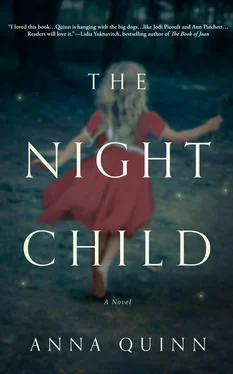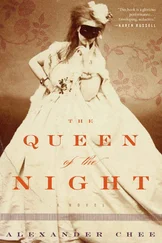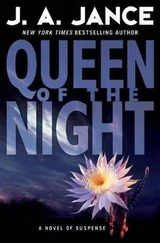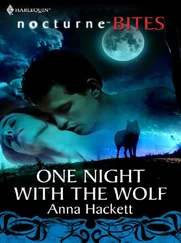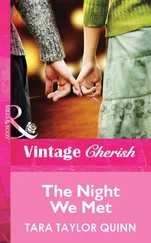“So you’re a feminist?” Elizabeth asks.
“Well, yes, of course.”
Elizabeth smiles slightly.
Jason says, “My brother says feminists are haters. Feminazis.”
“Hmmm,” Nora says. “No denying feminism is a loaded word, and when people are threatened, they look for something negative. But it doesn’t mean we should run from the word—that would be kind of what the name-callers want, right? Millions of people around the world suffer from racism, sexism, and extremism, and feminists are people who want equal rights for all people, regardless of sex or gender, so until those rights are equal, until everyone receives equal pay for the same job, until everyone has equal representation in government, until all people in every country can vote, have rights to their own bodies, yeah, I’m a feminist.”
“My mom’s pretty happy about Janet Reno getting appointed attorney general,” Chrissy says, trying to diffuse things.
“Is Reno a woman?” Jason asks, smirking. “She looks like a man. An ugly man.”
“Jason,” Nora says. “Considering half the population is female, and less than 16 percent are represented in Congress, Clinton’s appointment of Reno was pretty important for feminism. Reno is now one of the most powerful people in the government. And she’s also a constant reminder that femininity looks different for every woman—she’s changing the standard for beauty.”
“Unlike male rappers,” Susan says, glaring at Trevor, a tall, black kid drumming his fingers on his desk, making musical instrument sounds with his mouth.
“What you talkin’ ’bout?” Trevor says. “I don’t put women down.”
“Seriously? It’s like every other word is ‘bitch’ and ‘ho,’ and you’re always saying things like ‘The girl’s been had,’ like she’s some kind of object.”
“Hey, man, I’m just representin’ what’s around me,” Trevor says. “You don’t like it, start your own group. Damn, why you get so angry?”
“It’s up to all of you to educate yourselves, organize, and take up the unfinished business of the movement for equality,” Nora says. “Now, turn to Act I, Scene I, and let’s talk about iambic pentameter.”
Nora sits at her desk eating tuna out of a plastic container and tries hard to focus on grading papers.
“Mrs. Brown?” Elizabeth leans on the doorframe.
Nora sets her fork in the container and wipes her mouth with a paper napkin. Elizabeth looks formidable with her hard-edged posture and Kurt Cobain T-shirt. If she can stay in school, she’s one of those young women who could change the world.
“Hey, Elizabeth. What’s up?”
“I was wondering if I could talk to you about this?” She holds out a copy of Toni Morrison’s The Bluest Eye.
“Yes, of course. Have a seat.”
Elizabeth sits, straight up, her face tight. She clutches the book to her breast.
“Elizabeth, are you okay?”
“My mother’s forming a committee to ban this from the school library. God, she’s so ignorant, so inane.”
Nora stands and walks around to the front of her desk, leans against it. “Did she say why?”
“Pornography. Can you believe it? Where is there pornography in this book?”
Nora shakes her head. “That’s wrong. So wrong.” A slight thudding begins in her chest.
“I love this book,” Elizabeth says. “I love the little girl, Pecola.” She holds the book again to her breast, and her eyes well. “It makes me so sad to think of her praying for blue eyes—that she thought everything would be all right if only she had blue eyes—that if she had them, someone would love her and her life would be saved and things would be different.” And now, Elizabeth is crying, tears spilling down her cheeks.
Nora reaches for a box of Kleenex from her desk, holds it out to her. This girl breaks her heart. This girl knows something about anger and pain and sadness. Nora wants to pull her close, take her home, and wrap her in a fluffy blanket.
Elizabeth pulls out a Kleenex, wipes her eyes. “And you know what’s really fucked up?”
“What?” Nora says quietly.
“That she thought if she had blue eyes she would see differently.” Her words break apart. “That it’s not—it’s not the rest of us who are messed up—it’s her .”
“She was a victim,” Nora says in a soft voice. “She didn’t get to have a normal teenage life, if there is such a thing. She didn’t get to discover life, let alone her sexuality, on her own terms.” Heat rises in her chest. “Makes me angry,” she whispers. “Men and their power issues.”
Elizabeth looks at her then, just looks at her and stays quiet for a while—and then her face softens, and she says through her tears, “You know what’s really wrong? That the narrator makes it seem like if her father hadn’t been humiliated as a child he might not have hurt Pecola. Like he’s a victim or something! It was his fault! It’s the entire town’s fault!” She catches her breath and then whispers, “And now if the book is banned, it’s like we’re silencing her all over again.”
Nora leans over and puts her arms around her. “I’ll fight for the book, Elizabeth. I promise.”
That night Nora awakens from a recurring bad dream—the one where she runs through a dangerous neighborhood at night looking for her car. She runs past junkies and barred windows and pimps who shout things at her: “ Hey baby, come to Daddy .” And then, ahead, her car, and shit! There are punks vandalizing it, and she hides—always in the same place, between two old brick buildings—and watches, heart thudding, as the punks rip apart her VW Bug. She watches, cramped and panicked, her hand over her mouth as they wrench off the tires, smash the windows, and tear out the stereo. The one in the black ski mask flips out a blade and gouges a jagged line from the driver’s door to the rear bumper before they all run, arms carrying things that belong to her, into the darkness. Nora scans the street, and when she’s sure they’re gone, she makes herself walk to the stripped car. She stands near the heap of red metal, sickened by the trespass, her entire body trembling in the silence and confusion.
“God, that’s so classic ,” Paul had said to her, years ago, when she’d described the nightmare. “A classic dream of stolen identity. You don’t know who you are.”
His remarks had infuriated her at the time, though she’d finally dismissed them, believing he’d been frustrated because they hadn’t had sex in months, but now thoughts of Margaret, her words, I am a bad girl, infiltrate her mind, nausea rising into her throat until she can no longer stay in bed but must go to the closet in search of the orange shoe box. She can’t go on feeling the way she does, inhabited by an imaginary being making outrageous claims. She will prove Margaret isn’t real, prove she’s purely a symptom of fatigue, frantic hormones, or an iron deficiency or something.
Nora slips into the closet like an unarmed thief. She shuts herself inside and turns on the light. It’s a huge closet. On the left: Paul’s shirts (at least twenty white and blue Ralph Lauren oxfords), sport jackets, and pants (ten pleated khaki, ten black dressy, a half a dozen jeans) hang neatly, and underneath it all, ten pairs of black dress shoes and ten pairs of athletic shoes planted precisely on a metal shoe tree. On the right: her mess. Blouses, skirts, dresses, and coats—a palette of blues, blacks, and grays hang sloppily in no particular order, some piled on the floor, mixing in with her dirty clothes until she can’t tell the difference.
There’s a safe feeling here though, one of containment and familiarity. When she was little she’d spent hours and hours alone in her closet, hiding there with her flashlight to read and write stories about trees and birds and worlds that made sense. Sometimes, after her mother had too many gins, James would find her and ask with a look that alarmed her if he could come in too. And then later he’d say, tearfully, “Let’s never go out.”
Читать дальше
